Clearing 2025
Clearing places have been filled on this course for 2025 entry.
Medicinal Chemistry
UCAS code F1B2
- Study mode
- Full-time
- Duration
- 3 years
- Start date and application deadlines
-
- Start date
Clearing places have been filled on this course for 2025 entry.
UCAS code F1B2
Chemistry graduates are at the heart of science, underpinning some of the world’s most dynamic and exciting industries. This Medicinal Chemistry degree makes an ideal foundation for a wide range of career pathways or further study.
Our BSc programmes offer flexibility to choose optional modules from outside Chemistry. On this course 25% of your time will be allocated to studying pharmacology and biomedical sciences.
This programme will give you a solid grounding in all aspects of chemistry combined with an introduction to pharmacology, making it ideal for a wide range of career pathways, or further postgraduate training after your degree.
The first two years of this programme are identical to the MChem Chemistry with Pharmacology (F1BF) programme. Students take designated modules in biomedical and biological sciences and medicinal chemistry. You will progress rapidly during the first two years, studying a mix of theory and practical modules to give you a solid grounding in the subject.
Since students enter the Department with a wide range of experience in mathematics (which is essential for studying chemistry to a high level) we provide a flexible tiered maths for chemistry course allowing you to develop your skills at your own pace.
In year three, you only take organic and practical sections of the BSc Chemistry (F100) programme and take designated pharmacology modules that aim to help you apply your knowledge of chemistry and pharmacology to pharmaceutical problems, with particular reference to drug design and development.
If you decide during the first 18 months that you want to aim for a research career in chemistry, then you can transfer to the MChem Chemistry with Pharmacology (F1BF) or MChem Chemistry (F102) programmes provided you have obtained an average mark at the 2:1 level or above (60%).
This degree programme has a year abroad option. The year abroad is an incredible new opportunity to spend one academic year at one of our partner universities expanding your academic and cultural horizons. You’ll spend this time abroad in between your second and third years of study and your degree will extend by one year.
The Department of Chemistry is committed to continuous improvement of our curriculum. We are undergoing a curriculum review to further prepare our graduates for the next stage of their career by developing our degree programmes to incorporate knowledge and skills for the future workforce and ensure a positive learning experience for all students. Module and programme structures may change as we further develop an inclusive curriculum with enhanced sustainable, digital, and analytical chemistry elements. These aspects will sit alongside all the expected core chemistry components including organic, inorganic, and physical chemistry and professional skills.
This programme has bachelor accreditation from the Royal Society of Chemistry (RSC) ensuring your degree with us will set you on the pathway to a successful career.

The Royal Society of Chemistry is a learned society for chemists in the United Kingdom.

We’re proud to announce we’ve been awarded a Gold rating for educational excellence.
Discover what you'll learn, what you'll study, and how you'll be taught and assessed.
Programme details and modules listed are illustrative only and subject to change.
Programme details and modules listed are illustrative only and subject to change.
You will study selected components from the BSc Chemistry (F100) programme plus 30 credits of modules from Pharmacology.
Programme details and modules listed are illustrative only and subject to change.
Laboratory classes in years one and two prepare you for independent laboratory work in year three. In year three you will carry out mini research projects.
Computational modelling and molecular visualisation are introduced as interactive animated models from year one, reinforced as a key skill in later years.
You are assessed by examination at the end of each semester (January and May/June) and by continuous assessment of laboratory practicals, class tests, workshops, tutorials and assignments.
You have to pass each year of study before you are allowed to progress to the following year. Re-sit opportunities are available in September at the end of years one and two.
If you take an industrial placement, a minimum standard of academic performance is required before you are allowed to embark on your placements. You are expected to perform at a 2:1 level if you wish to continue on a MChem programme.
All years of study (with the exception of year one) contribute to the final degree classification.
We have a distinctive approach to education, the Liverpool Curriculum Framework, which focuses on research-connected teaching, active learning, and authentic assessment to ensure our students graduate as digitally fluent and confident global citizens.
The Liverpool Curriculum framework sets out our distinctive approach to education. Our teaching staff support our students to develop academic knowledge, skills, and understanding alongside our graduate attributes:
Our curriculum is characterised by the three Liverpool Hallmarks:
All this is underpinned by our core value of inclusivity and commitment to providing a curriculum that is accessible to all students.
The qualifications and exam results you'll need to apply for this course.
| Qualification | Details |
|---|---|
| A levels |
BBC (including Chemistry: B and ) |
| BTEC Level 3 national extended diploma |
Not Accepted – due to test and time constraints. |
| BTEC combinations |
Not Accepted - due to test and time constraints. |
| Welsh Baccalaureate Advanced |
C in the Welsh Baccalaureate, plus BB at A level to include Chemistry grade B and a science grade B at A level. |
| Access |
Not Accepted - due to test and time constraints. |
Studying with us means you can tailor your degree to suit you. Here's what is available on this course.
University of Liverpool students can choose from an exciting range of study placements at partner universities worldwide. Choose to spend a year at XJTLU in China or a year or semester at an institution of your choice.
Immerse yourself in Chinese culture on an optional additional year at Xi'an Jiaotong Liverpool University in stunning Suzhou.
Broaden your world by spending an additional year of study at a partner university abroad following your second year of study.
Take a semester of your second year of study at one of our worldwide partner institutions.
Spend a summer abroad on a study placement or research project at one of our worldwide partner institutions.
Year in industry placements give you an in-depth workplace experience where you can develop your skills and apply your learning.
If you'd like to undertake a year in industry, you can transfer to Medicinal Chemistry with a Year in Industry BSc (Hons) during your studies, subject to meeting the academic requirements of your course.
To spend a year in industry, you'll need to secure a placement with an organisation. If you're unable to find a placement, you'll continue with the standard version of the course without a year in industry.
Every student at The University of Liverpool can study a language as part of, or alongside their degree. You can choose:
Our excellence in research strongly influences our teaching, and ensures that you are engaged in frontier science in optional modules and in project work. Our state-of-the-art Central Teaching Laboratories offe a unique environment in which to study Chemistry.
Your course will be delivered by the Department of Chemistry.
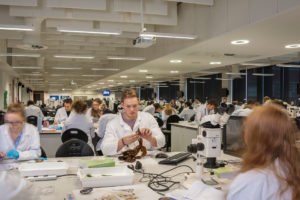
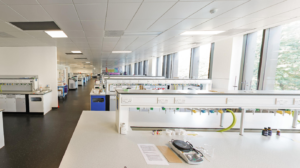
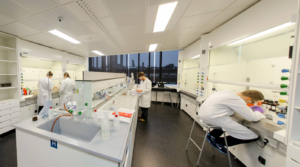
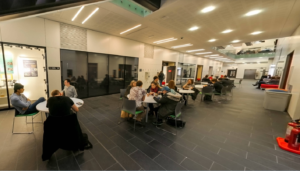
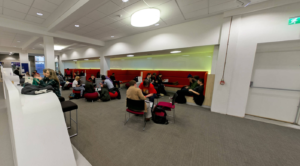

From arrival to alumni, we’re with you all the way:

The research that takes place in the chemistry department here in Liverpool is internationally leading. It makes huge impacts around the world.

Want to find out more about student life?
Chat with our student ambassadors and ask any questions you have.
Visits to the department by leading companies such as GlaxoSmithKline and Unilever ensure that you make contact with prospective employers at key stages in your final year. Graduates find employment in many areas, from the pharmaceutical industry to business management.
Typical careers of our graduates include:
Recent employers of our graduates are:
4 in 5 chemistry students find their main activity after graduation meaningful.
(Graduate Outcomes, 2018-19.)
Hear what graduates say about their career progression and life after university.

Victoria is graduated from our BSc Chemistry with a year in industry degree in 2020. She received an offer to work as a Global Operations Graduate Associate at AstraZeneca.
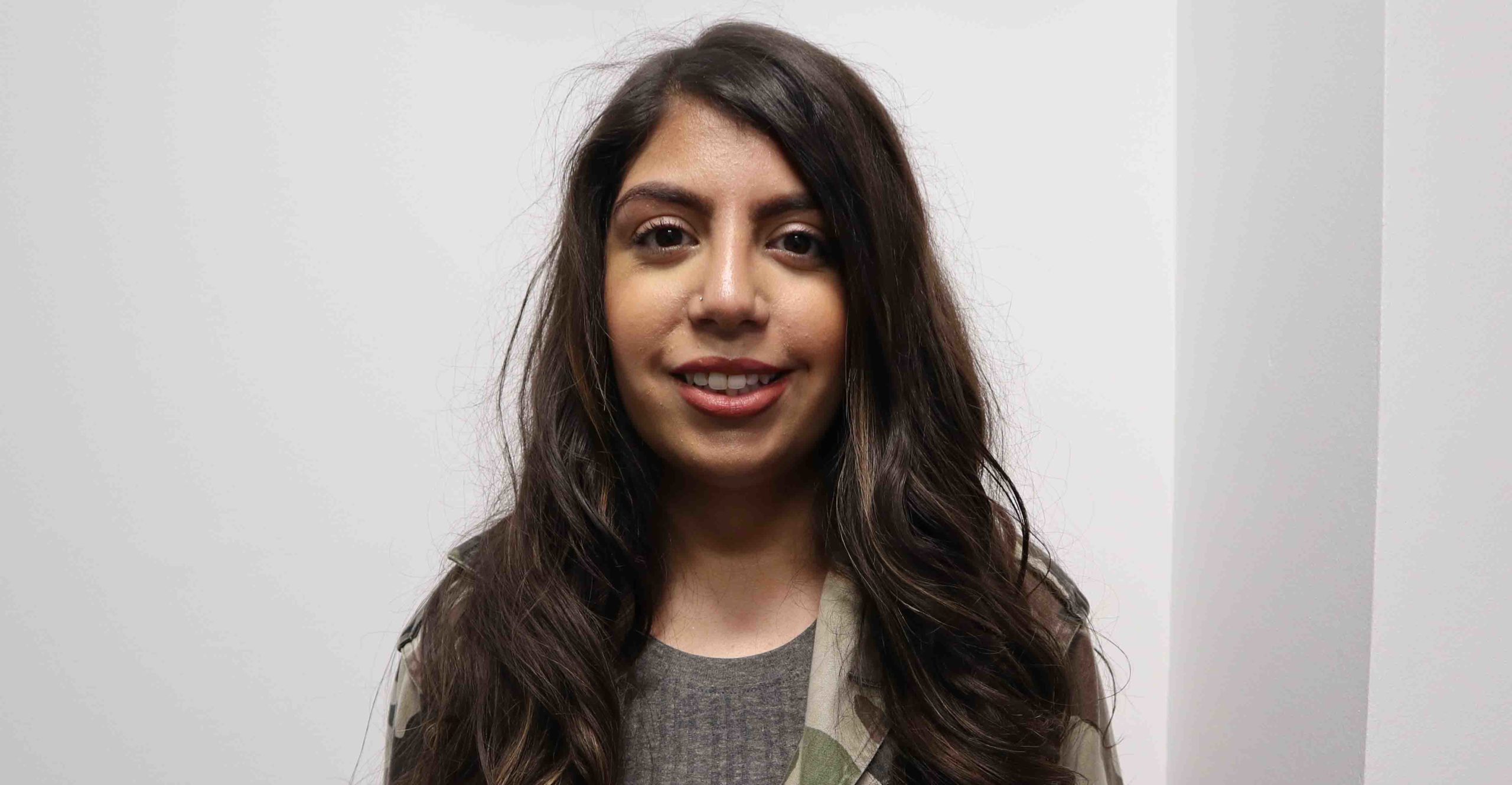
Fizah is a graduate from 2018 who completed a degree in chemistry, nonetheless has started a graduate career in commercial at Johnson Matthey, and has gone on to be appointed Strategy Execution Analyst.
Your tuition fees, funding your studies, and other costs to consider.
Full-time place, per year - £9,535
Year abroad fee - £1,430 (applies to year in China)
Full-time place, per year - £29,100
Year abroad fee - £14,550 (applies to year in China)
The tuition fees shown are correct for 2025/26 entry. Please note that the year abroad fee also applies to the year in China.
Tuition fees cover the cost of your teaching and assessment, operating facilities such as libraries, IT equipment, and access to academic and personal support. Learn more about paying for your studies.
Your tuition fee covers almost everything but you may have additional study costs to consider, such as books.
Find out more about the additional study costs that may apply to this course.
We offer a range of scholarships and bursaries that could help pay your tuition and living expenses.
If you’re a UK student joining an undergraduate degree and have a household income below £35,000, you could be eligible for a Liverpool Bursary worth up to £2,000 for each year of undergraduate study.
Apply for an Asylum Seekers Scholarship and you could have your tuition fees paid in full and receive help with study costs. You’ll need to have applied for asylum in the UK, or be the dependant of an asylum seeker, and be joining an eligible undergraduate degree.
If you’ve spent 13 or more weeks in Local Authority care since age 14, you could be eligible for a bursary of £3,000 per year of study. You’ll need to be a UK student joining an eligible undergraduate degree and be aged 28 or above on 1 September in the year you start.
Are you a UK student with a Black African or Caribbean heritage and a household income of £25,000 or less? You could be eligible to apply for a Cowrie Foundation Scholarship worth up to £8,000 for each year of undergraduate study.
If you’re a UK student identified as estranged by Student Finance England (or the equivalent UK funding body), you could be eligible for a bursary of £1,000 for each year of undergraduate study.
Joining a School of Biosciences degree and have a household income of less than £25,000? If you’re a UK student, you could apply to receive £4,500 per year for three years of your undergraduate course.
Do you live in the Liverpool City Region with a household income of £25,000 or less? Did neither of your parents attend University? You could be eligible to apply for a Nolan Scholarship worth £5,000 per year for three years of undergraduate study.
Are you a UK student with a household income of £25,000 or less? If you’ve participated in an eligible outreach programme, you could be eligible to apply for a Rigby Enterprise Award worth £5,000 per year for three years of your undergraduate degree.
Are you a UK student with a household income of £25,000 or less? Did neither of your parents attend University? You could be eligible to apply for a ROLABOTIC Scholarship worth £4,500 for each year of your undergraduate degree.
Apply to receive tailored training support to enhance your sporting performance. Our athlete support package includes a range of benefits, from bespoke strength and conditioning training to physiotherapy sessions and one-to-one nutritional advice.
Joining a degree in the School of Electrical Engineering, Electronics and Computer Science? If you’re a UK student with household income below £25,000, you could be eligible to apply for £5,000 a year for three years of study. Two awards will be available per academic year.
If you’re a young adult and a registered carer in the UK, you might be eligible for a £1,000 bursary for each year of study. You’ll need to be aged 18-25 on 1 September in the year you start your undergraduate degree.
Have a question about this course or studying with us? Our dedicated enquiries team can help.
Last updated 14 August 2025 / / Programme terms and conditions